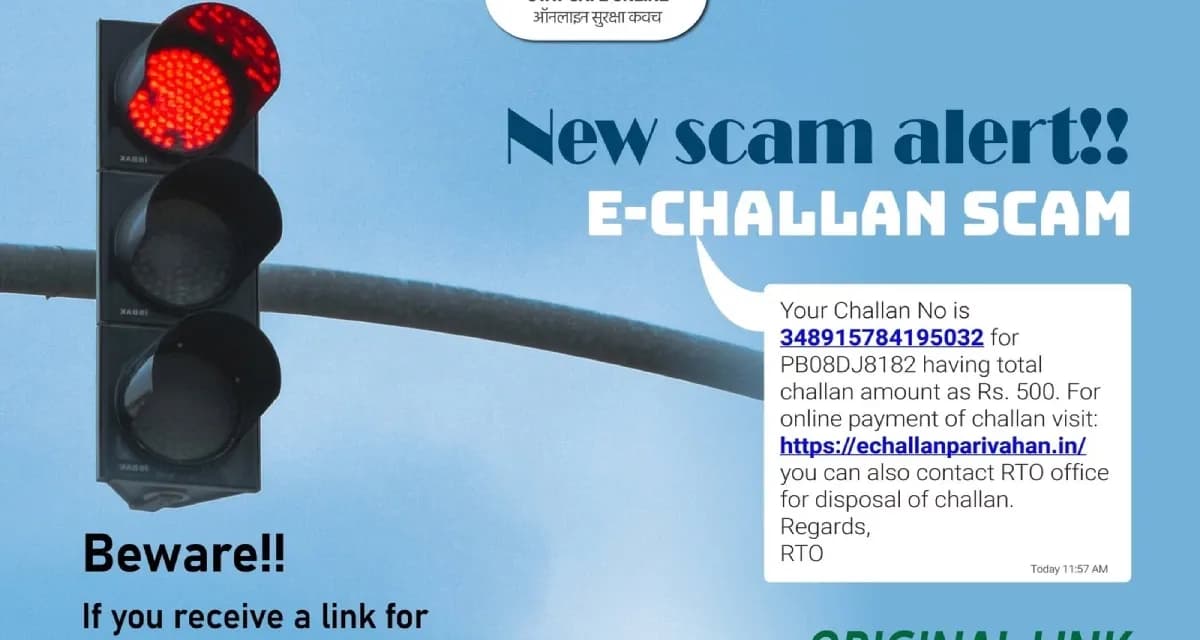In the ever-evolving landscape of online fraud, a new scam has emerged, targeting unsuspecting vehicle owners through WhatsApp. Dubbed the "Fake Traffic Violation Challan Scam," it involves fraudsters sending bogus challans via the messaging platform, complete with an APK file intended to siphon personal details.
New Delhi: Following a slew of online scams ranging from job offers to investment schemes, a new threat has surfaced – the Fake Traffic Violation Challan Scam. A Reddit user u/Dambu186 recently shared his encounter with the scam, highlighting the importance of awareness in avoiding such traps.
How does the Fake VAHAN Traffic Violation Challan Scam work?
The modus operandi of this scam is disarmingly simple yet effective. Scammers impersonate legitimate government traffic departments, such as 'Parivahan' in India, and send messages via WhatsApp notifying recipients of a supposed traffic violation registered against their vehicle number. Accompanied by an APK file, the message urges recipients to download the app to view the challan and make a payment.
The message includes details like a specific date, a randomly generated GPS location of the alleged violation, and a fake challan number. It appears authentic enough to deceive the uninitiated, especially new car owners or those unfamiliar with the traffic violation notification process.
Also Check:- Check E Challan status through Verified Portal
Understanding APK:
APK, short for Android Package Kit, is the file format used by Android for distributing and installing mobile apps. Similar to EXE files on Windows, APK files are used for installing software on Android devices. However, in this scam, the APK is not a benign installer but a trojan horse designed to infiltrate your phone.
The Real Danger:
Upon installing the provided APK, users unknowingly install malware. This malware can take various forms, from spyware that logs keystrokes to more aggressive types that grant attackers full control over the device. The fake app presents a fraudulent payment gateway to capture credit card details or net banking credentials.
Preventing the Scam:
Awareness and vigilance are crucial defences against such scams. Here are some steps to mitigate the risk:
Verify Before You Click: Always verify the authenticity of any communication from official sources through their verified channels. Do not rely on messages received via WhatsApp or other social media platforms unless verified.
Avoid Unknown Links and Downloads: Refrain from downloading apps or clicking on links from unknown sources. Official apps should only be downloaded from reputable app stores like Google Play or directly from the official website.
Use Secure Networks: Avoid conducting financial transactions over public or unsecured Wi-Fi networks to prevent interception of sensitive information.
Monitor Your Accounts: Regularly check your bank statements and transaction history for any unauthorized activity.
Educate Others: Share information about such scams with friends and family, especially those who might be less tech-savvy.
By staying informed and cautious, individuals can protect not only their personal information but also their peace of mind. In the battle against cybercrime, awareness is the shield, and action is the sword. Stay safe and sceptical.
Also Check:- Check Vehicle Owner Details
Also Read:
